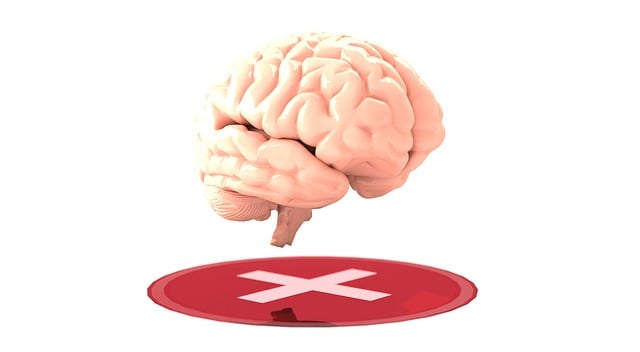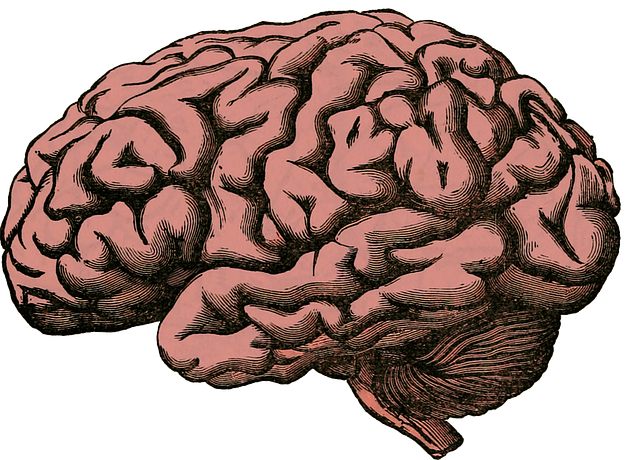Workplace stress, caused by factors like heavy workloads and demanding supervisors, negatively impacts mental wellness, job satisfaction, and productivity. Organizations are increasingly prioritizing mental health through initiatives like Mental Wellness Coaching Programs, Crisis Intervention Guidance, and training in stress management techniques, aiming to create healthier environments, improve employee retention, and boost overall productivity. Stress management techniques such as mindfulness meditation, cognitive-behavioral therapy (CBT), and deep breathing exercises enhance mental well-being, build resilience, and improve productivity among professionals. Integrating relaxation and mindfulness practices like meditation, deep breathing, and yoga is crucial for healthcare professionals to manage stress and foster a healthier work environment. Building resilience through compassion cultivation and fostering a culture of mental health awareness with readily available support systems is an effective strategy to prevent burnout and improve job satisfaction.
In today’s fast-paced work environment, managing stress has become a crucial aspect of employee well-being. This article delves into the world of stress management techniques tailored for the workplace, offering valuable insights to mitigate job-related stress and its potential impact on mental health. We explore evidence-based strategies, including relaxation methods, mindfulness practices, and building resilience, providing a comprehensive guide to therapy for workplace issues and job stress. Get ready to discover effective ways to navigate and overcome these challenges.
- Understanding Workplace Stress and Its Impact
- Exploring Effective Stress Management Techniques
- Integrating Relaxation and Mindfulness in the Workplace
- Building Resilience: A Proactive Approach to Job Stress
Understanding Workplace Stress and Its Impact

Workplace stress is a prevalent issue that can significantly impact employees’ mental wellness and overall job satisfaction. It arises from various factors such as heavy workloads, tight deadlines, demanding supervisors, or a lack of control over one’s tasks. Understanding these stressors is crucial in developing effective therapy for workplace issues and job stress. When left unaddressed, chronic stress at work can lead to physical and psychological ailments, decreased productivity, and even turnover.
Mental health awareness has grown increasingly important in the professional realm. Organizations are now recognizing the value of implementing Mental Wellness Coaching Programs Development to support employees. Crisis Intervention Guidance can also be vital in managing acute stress events. By offering resources and training in stress management techniques, companies can foster a healthier work environment, enhance employee retention, and improve overall productivity.
Exploring Effective Stress Management Techniques

Stress management techniques play a pivotal role in addressing workplace issues and job stress. Effective strategies such as mindfulness meditation, cognitive-behavioral therapy (CBT), and deep breathing exercises have proven beneficial for professionals across various industries. These practices help individuals cultivate inner strength, enhance resilience, and promote better mental well-being. By integrating these techniques into daily routines, employees can reduce the harmful effects of stress, leading to improved productivity and job satisfaction.
Exploring these methods further enables organizations to implement community outreach programs that foster support networks within workplaces. Additionally, focusing on burnout prevention strategies for healthcare providers is essential given their high-pressure environments. Incorporating stress management into professional development plans not only benefits individuals but also contributes to a healthier organizational culture, ultimately strengthening the workforce and enhancing overall productivity.
Integrating Relaxation and Mindfulness in the Workplace

In today’s fast-paced work environment, integrating relaxation and mindfulness techniques has become an essential aspect of stress management for mental health professionals. The demand for effective risk management planning for mental health professionals is higher than ever as job-related stress continues to rise. By incorporating practices like meditation, deep breathing exercises, and yoga into their daily routines, professionals can significantly enhance their emotional regulation capabilities, leading to improved well-being and reduced burnout.
These self-care practices not only help in managing workplace issues but also foster a healthier and more productive work environment. Mindfulness, in particular, has been shown to reduce symptoms of anxiety and depression, improve focus and concentration, and enhance overall job satisfaction. By teaching these techniques to their clients, mental health professionals can empower them to navigate the challenges of modern work life with greater resilience and emotional balance.
Building Resilience: A Proactive Approach to Job Stress

Building resilience is a proactive approach to managing job stress and preventing burnout, especially in demanding professions like healthcare. By integrating compassion cultivation practices into daily routines, professionals can enhance their emotional well-being and improve patient care. Therapy for workplace issues and job stress isn’t just about coping mechanisms; it’s about fostering a culture of mental health awareness where support systems are readily available. This proactive mindset equips individuals with the tools to navigate challenging situations, leading to better resilience and overall job satisfaction.
For healthcare providers, burnout prevention strategies often involve recognizing the impact of chronic stress on both personal and professional life. Through mindfulness exercises and compassionate self-care practices, professionals can cultivate a sense of balance and perspective. Mental health awareness training becomes an essential component in managing workplace pressures, ensuring that individuals feel empowered to address their well-being proactively rather than reacting to stress as it arises.
Stress management techniques are essential tools for navigating the challenges of modern work environments. By understanding the impact of workplace stress and adopting proactive strategies, individuals can enhance their well-being and resilience. Integrating relaxation, mindfulness, and building resilience enables employees to effectively manage job stressors, leading to improved mental health and increased productivity. Implementing these practices serves as a powerful therapy for workplace issues and job stress, fostering healthier and more fulfilling professional lives.











